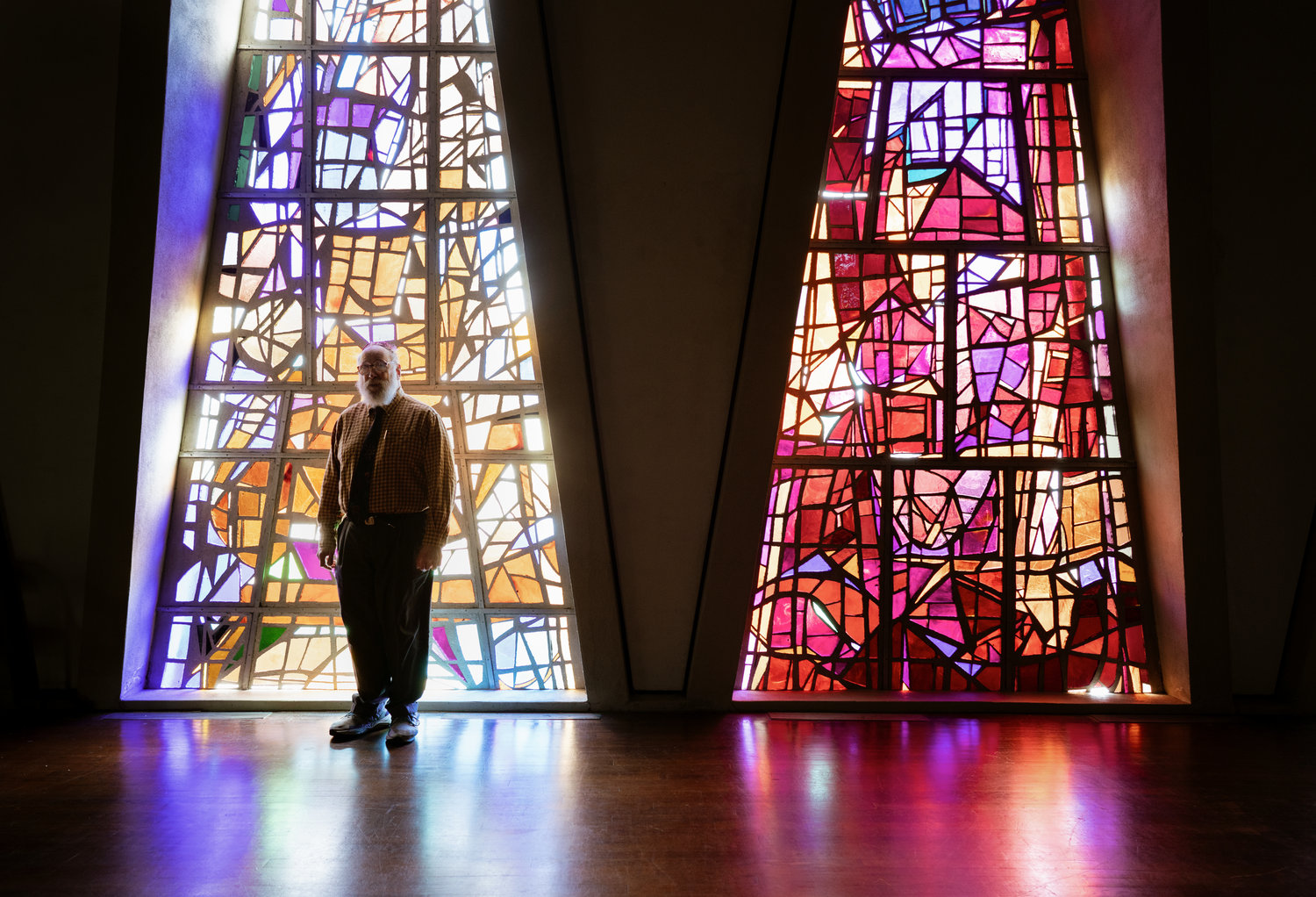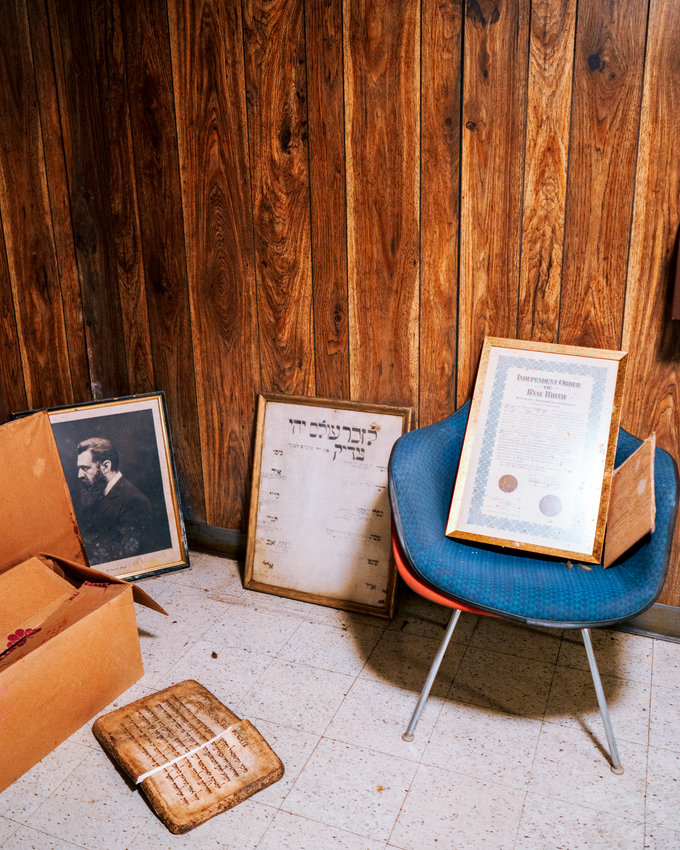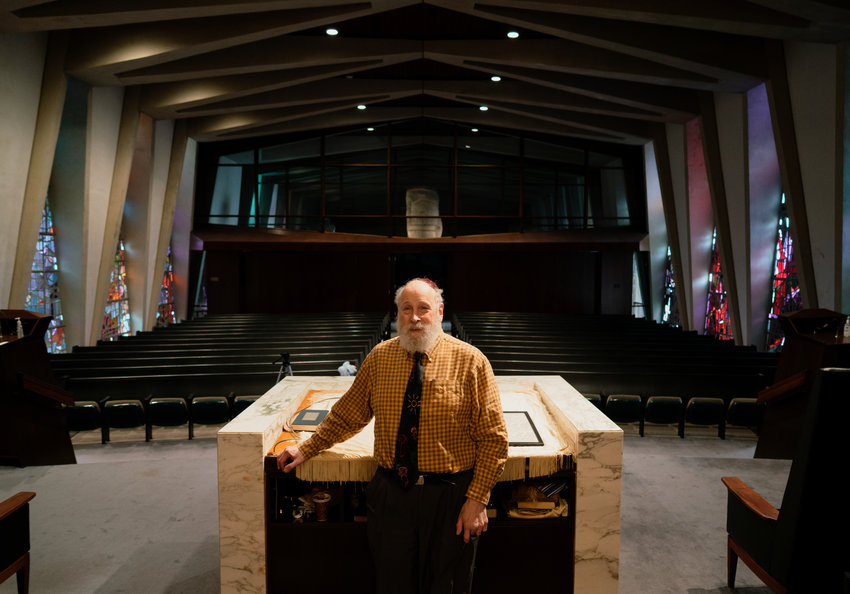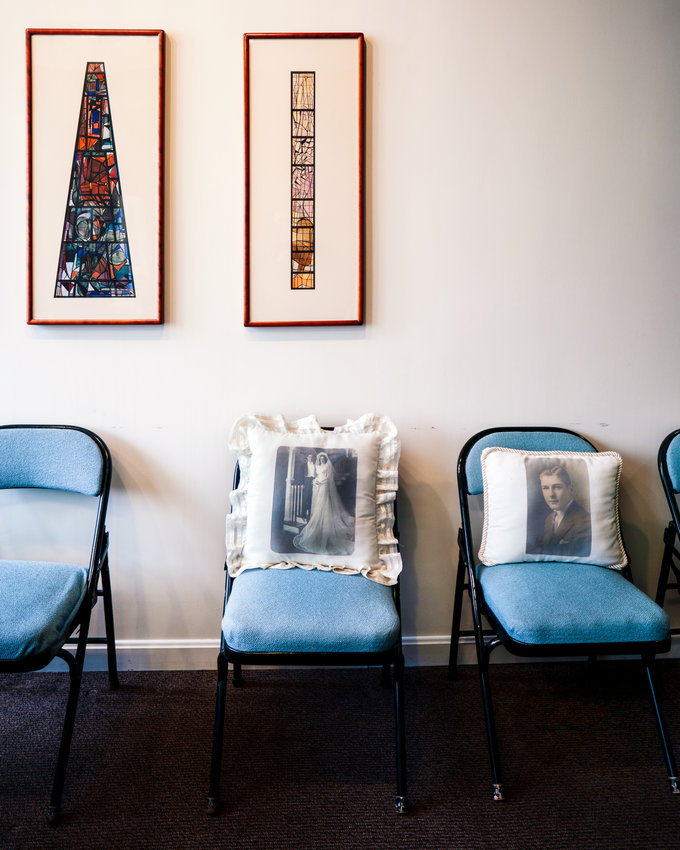Cantor Jeff Cornblatt sees new opportunities amid a changing world
When Cantor Jeff Cornblatt opens a side door into Congregation B’nai Israel’s expansive synagogue in Woonsocket, visitors quickly become aware that the building is a gorgeous, confident, midcentury dreamboat, designed by famed architect Samuel Glaser with strong lines and symbolic objects throughout.
Housing the third-oldest continuing independent congregation in Rhode Island, at 120 years old, the synagogue boasts vast stained-glass windows, room for 350 people in the main sanctuary, a hall of Hebrew school classrooms, a sunlit courtyard, two full Kosher kitchens, a dance hall and more; it has the strong bones, art and artifacts to support a flourishing Jewish community.
But one might also notice the cold. Dwindling in-person attendance over recent years, heightened by the pandemic, keeps the heat off literally and metaphorically in most of the building.
But the most important thing to notice is how starkly Cornblatt’s demeanor contrasts with the cold building. His warm optimism and easy conversation changes this narrative from one about a fading venue into one about an accessible, inclusive community of faith.
Cornblatt, 68, believes in the power of adaptability, of using the shul as a vessel for sanctuary, empowerment and improvement. And he knows a thing or two about adaptability himself.
Growing up as the grandson of a Russian cantor-trained grandfather in the town of Brookline, Massachusetts, he craved seeing the world from a different angle, which led him to attend the Quaker school William Penn University, in rural Iowa. After graduating, he worked for Verizon, bought a home in Cumberland and went back to school at Hebrew College, in Brookline.
Cornblatt began attending services at B’nai Israel in 1987, occasionally joining the rabbi on the bimah to daven.
“When they discovered that I had ba’al tefillah skills, I was asked more often,” he said.
“I became a cantor ‘the old-fashioned way,’ ” Cornblatt continued. “I learned from cantors, as well as from traditional ba’alei-tefillah, starting at a very young age. Of course my work at Hebrew College served to deepen, broaden and ‘amplify’ (pun unintended, but apt!) my cantorial work.”
Cornblatt and his wife, Margo, and their son, Rafael, eventually moved from Cumberland to North Andover, Massachusetts. In 1998, Cornblatt began leading services as the cantor at B’nai Israel, where he has long been the sole clergy member. He calls himself the “RWP” – Rabbi Without Papers – of the synagogue.
When the pandemic first hit, Cornblatt said, “I thought would be the death of the congregation. we probably have a 300% increase in what I call our membership. Some of them are people who grew up here, they retired to Arizona, and for them it’s handy because they can’t be here, COVID or not. But most of them are people who live around here and are mobile and healthy and could go to shul, but don’t. I didn’t expect them to get interested in, but they are.”
Cornblatt sees this new mode of gathering as an interesting extension of ways to practice Judaism. The ability to gather to pray together, even online, to acknowledge the challenging times and then move on to explore other ideas is a way to keep Judaism thriving through the pandemic, he said.
Cornblatt is passionate about the future and its potential for multidenominational, egalitarian practices and services. While B’nai Israel is a Conservative shul, Cornblatt said he incorporates aspects of many Jewish movements into his services.
“To me, if it’s good, it’s good, who cares where it came from. We have a hodgepodge here,” he said.
It is less important where Jewishness is being practiced geographically, he explained as he walked by classrooms turned into storage spaces, and more important that it is being practiced anywhere.
“I always remind people … that your congregation may be on the way out, but Judaism is not falling apart,” he said. “People tend to think what they see immediately around them in their local synagogue is indicative of Jewry in the world, or even in America, or even in Rhode Island. And it’s not true.
“It is sad if you’re attached to a building, but don’t make the mistake of thinking Judaism is dwindling. We tend to sort of intuitively, incorrectly, think that.”
For now, he said, B’nai Israel will continue to hold services and special events online – and might continue to do so even after in-person services resume.
The world is changing, Cornblatt says, creating new opportunities to practice Judaism in more expansive, inclusive, fluid and inspiring ways.
HANNAH ALTMAN (haltman@jewishallianceri.org) is the content producer for the Jewish Alliance of Greater Rhode Island and a writer for Jewish Rhode Island.











